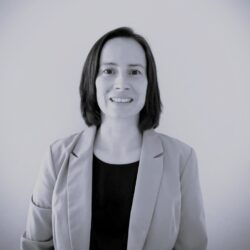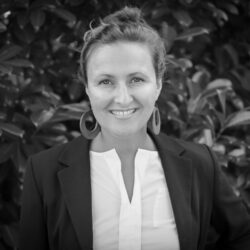The project “Possibilities and Limits of Digital Participation Instruments for Public Participation in the Site Selection Process (DigiBeSt)” is dedicated to researching target group-specific participation options for the socially relevant search for a final repository site.
The Federal Office for Safety in Nuclear Waste Disposal (BASE), which commissioned the project is obliged by the Site Selection Act (StandAG) to involve the general public in the final repository siting issue. Against the background of digitalization and the effects of the COVID-19 pandemic, the objective of the project is therefore to explore the possibilities and limitations of digital participation tools for public participation in the site selection process.
To our great pleasure, the project is being carried out in cooperation with the nexus Institute for Cooperation Management and Interdisciplinary Research from Berlin.
Concrete questions that the project addresses are:
- In the aftermath of the COVID-19 pandemic, are there opportunities for digitizing information and deliberation events formerly thought to be “impossible to digitize”?
- How can young people, who are considered an important target group for participation in the repository siting issue, be engaged in a way that is appropriate for the target group?
- Which media, tools and platforms are particularly well suited for participation?
- In what way must information on the process and participation opportunities be prepared, also in order to reach specific target groups?
In order to arrive at the most informative results possible, the research project includes a variety of analytical methods. These methods of analysis include a review of the current state of research on digital participation, an impact study of target-group-specific digital participation by young generations, and a transdisciplinary workshop with experts in digital participation. The results, from which recommendations for action for BASE will be derived, will be summarized in a final report.The project runs for 18 months (01.02.2022 – 31.07.2023).
Further information on the project can also be found on the pages of the BASE (the links lead to the German websites):
https://www.base.bund.de/DE/themen/fa/sozio/documents/DigiBeSt.html
Contact
Jun.-Prof. Dr. Tobias Escher
Board, Computer Science, Political Science, Sociology

Tobias Escher leads a BMBF-funded junior research group investigating the effects of participation processes on the quality and legitimacy of political decisions, especially in the context of the transformation to sustainable mobility in the local context. Previously, he supervised the DIID as well as the NRW Forschungskolleg Online-Partizipation at the HHU-Düsseldorf as scientific coordinator. He is a social scientist and holds a PhD from the Oxford Internet Institute at the University of Oxford. He can also draw on his basic knowledge of computer science when assessing the possibilities and limits of digitization.
His research focuses on the evaluation of political participation online and offline. In particular, he addresses the question of the extent to which citizen participation contributes to higher quality and legitimacy/acceptance of political decisions. He has developed a teaching module on the theory and practice of online participation, from which, among other things, a project on student participation in teaching has emerged.
Photographer: ©Tilman Schenk
Projects
Contact
Dr. Katharina Gerl
Political Science

Dr. Katharina Gerl has been a research assistant at DIID at HHU-Düsseldorf since 2016. She studied Political Science (B.A.) at the University of Bremen and Political Communication (M.A.) at HHU-Düsseldorf. For her dissertation at the Chair of Political Science II at Heinrich Heine University, she studied the impact of digital media on political parties as organizations.
Her research interests lie in the areas of effects and acceptance of digital democratic innovations in politics and administration as well as of artificial intelligence for political opinion-forming and decision-making.
Projects
Contact
Dr. Anna Soßdorf
Alumni, Communication Studies

Dr. Anna Soßdorf was a research associate at the Institute of Social Sciences at HHU-Düsseldorf and a coordinator at DIID in teaching and research from 2019 to 2022. Since then, she has been an alumni of DIID. In 2015, she completed her PhD on the political participation of young people in communication studies at the University of Düsseldorf. Since 2023, she has been working as a research associate at the FZI Forschungszentrum Informatik Berlin in the Information Management & Analytics department and is part of the House of Participation team. In addition, she has been active as a freelance trainer, consultant and researcher on digital and civic education, citizen science and science communication since 2015.
Her research interests include (digital) participation, youth participation, digital literacy, Citizen Science and science communication. She is active in various Citizen Science networks and co-author of the recently published white paper Citizen Science Strategy 2030 for Germany.


